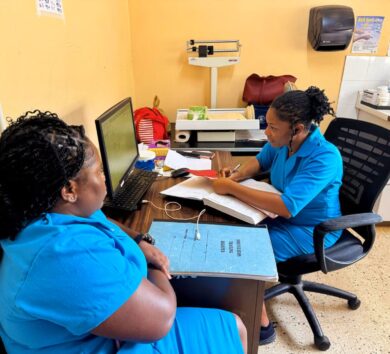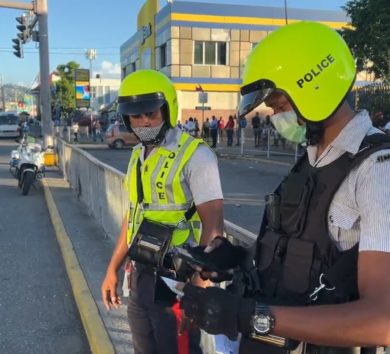

Senior Social Protection Economist at the World Bank Clemente Avila outlined that though youth are full of talent, creativity, and energy, they are facing a combination of challenges related to job quantity, job quality, and job inclusiveness.
While speaking at the ‘Jobs Poverty in the Caribbean: Youth Perspective’ webinar, Avila highlighted that as it relates to job quality, youth unemployment has been a persistent problem in the region. “On average, one in four young people in the Caribbean are not in employment, education or training. In many Caribbean countries, it’s two to three times higher than the unemployment rate for adults… So this is much higher than the average that we see for Latin America or the same,” he said.
He said that in terms of job quality, many young people, even those that are able to find jobs, are stuck in poor-quality jobs, in jobs that are informal, that are low-paying, and that are unstable.
“A large share of Caribbean youth are working without contracts or without access to any social protection benefits. So, these jobs aren’t really allowing people to plan or build for the future. These are basically subsistence jobs.”
Avila further noted that in terms of inclusiveness, society talks about youth as if they are a single, homogeneous group. “We know that’s not the case. The barriers young people face are not the same for everyone. So, for instance, young women tend to experience higher unemployment rates despite having higher academic achievement. They also bear the burden of unpaid care responsibilities, and they also face gender-based discrimination. Youth with disabilities also face additional and often invisible barriers, from inaccessible training environments to workplace discrimination.
“And young people from low-income households in remote areas often struggle with little access to transport, digital connectivity in the recent wave, and lack of access to job networks,” he continued.
Avila said that given this landscape, it is crucial to examine three key factors that are critical to understanding employment issues facing Caribbean youths. “So job creation and availability, which is basically what we call labour demand; skills and participation, which is basically what we call labour supply; and bringing these two together in a coordinated manner to reduce labour market afflictions.”
He also expressed that the broader economic environment has a direct impact on employment, such as climate violence, economic instability, and challenges in terms of law, while also indicating that the overall business environment will influence how many jobs are created and where.
“In many countries, limited formal job opportunities and high-quality job opportunities require self-employment or informal work in a low-quality position, and because most of the economies in the region rely heavily on tourism and commodity exports, jobs are often concentrated in a few sectors. Sectors that are very vulnerable to external shocks, like hurricanes or global economic downturns.
“But it’s important that we also create opportunity. There is a chance to invest in youth in new and strategic ways through digital transformation, the creative industries, and the green economy. All of them offer new paths of diversification and new potential for youth employment,” Avila added.
Barriers youth face in finding jobs
Additionally, Abigayle Morgan, who is a second-year student at the University of the West Indies, specialising in Integrated Marketing Communication and the first-place winner of the World Bank Essay Competition, highlighted while sharing a first-hand experience that the biggest barrier young people face in finding decent jobs today is a lack of experience.
“As a student, I recently graduated, and I had trouble finding work because I didn’t have any experience in the fields I was applying for, and it kind of creates a catch-22 situation where you can’t get a job because you don’t have experience, and you can’t get experience because you don’t have a job,” she said.

Also, Rol-J Williams, who is a medical student at the University of the West Indies, St Augustine, outlined that lack of opportunities is another barrier facing young people to acquire jobs. “I could break down lack of opportunities into lack of decent skilled job opportunities that provide a perfect match for the skills that young people possess or can possess in a fair system, and this, of course, cements the need for economic diversification… I also think that there’s a lack of tertiary education opportunities that are made available to youth. Of course, you do have the exceptions of Barbados and Trinidad and Tobago, where tertiary education is heavily subsidised.
“But in other countries where this is not the case, you know, tertiary education is seen almost as a privilege and not a right, and this is, in fact, troubling given that a 2018 World Bank report titled Latin America and Caribbean Tertiary Education found that we were ranked behind North America, Europe and Central Asia in terms of tertiary education enrolment. But this in itself is a double-edged sword because how do you educate your population more when you don’t have decent skilled jobs for them in the end?” Williams continued.

David Salmon, an award-winning journalist and academic from Jamaica, also exclaimed that the biggest challenge that young people face now is the coordination issues with education institutions, job seekers and employers.
“We see in the region that a lot of people speak about the need to increase the number of STEM graduates. There are scholarships available for STEM graduates, but many STEM graduates, once they enter the labour market, realise that, well, we can’t find a consummate job for the skill level that we have… So, really what we see here, what I call the coordination issue that is taking place, is that we’re producing graduates for certain fields, but some of those fields themselves may want graduates that have a different kind of training, and simultaneously, the graduates themselves might not necessarily be aware of what they need to get trained in.
“So, you see this mismatch across several levels, and that’s how you can get a case where, in Jamaica, for example, there is a shortage of engineers, but many engineers can’t find employment at different levels,” he added.






Comments